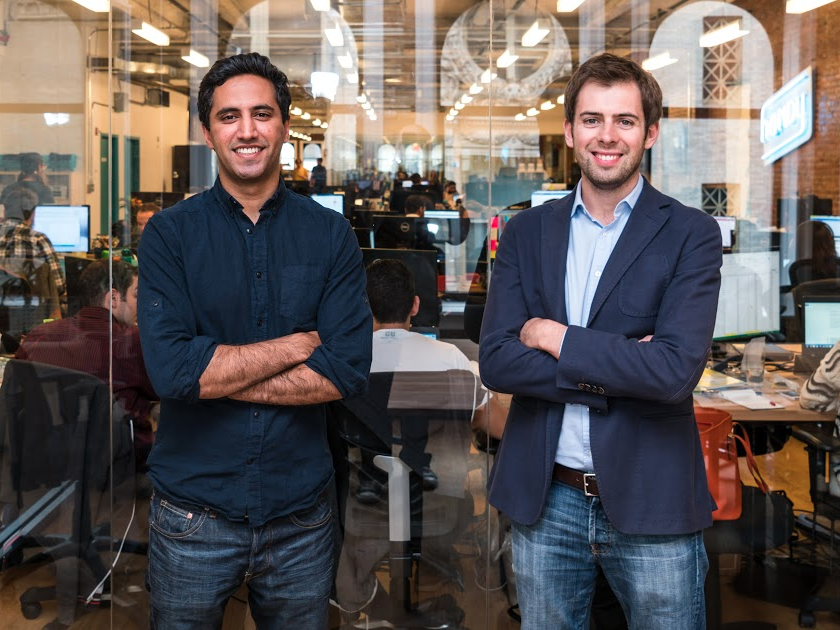In November 2015, Rebecca Greene spent two weeks working nonstop on a big undertaking: revamping Handy’s culture.
Handy launched in 2012 with a simple promise: busy professionals could book home cleaning services from an app, and the company would match that demand with workers who wanted to clean houses.
Greene, vice president of growth at the home-cleaning startup, joined in 2014 and quickly rose through the ranks to become one of the first women on Handy’s executive team in summer 2015. She had watched the company grow rapidly and secure millions in funding.
But the company had some well-publicized customer satisfaction glitches, and internally it was a mess.
Several former employees who spoke with Business Insider described a hard-partying workplace that evolved into a workaholic culture. The company didn’t have an HR department. And some of Handy’s cleaners were disgruntled at being classified as independent contractors, yet forced to adhere to strict rules.
It was time for a change.
"There's one thing when you're trying to build a company and it's another thing when you're trying to build an org and a culture," Greene told Business Insider. "When I joined Handy, it was much more about the business opportunity and how are we going to accomplish the business goals, and a lot less about, 'Wait a second, how is the org going to run? How are the people going to feel? How are we going to motivate them to get to this vision?'"
Greene's work produced a culture deck that's more than 90 slides long (duplicated below).
At the same time, the company paused its rapid growth, taking more than six months to focus on unit economics, improving the customer experience, and improving how it gets workers on board. Handy points to this as something of a turning point for the company: its first foray into defining what Handy stands for, changing its image from a hard-partying startup to a more mature company, and working to build a more sustainable business.
A high-pressure, all-work environment
Greene started working on Handy's culture at a seminal time for the company. Handy had just raised its Series C, a $50 million round that put the company's valuation around $500 million. Handy was operating in 28 cities in the US and three more internationally, had activated more than 50,000 professional cleaners on its platform, and had well over 100 employees.
But there were some big challenges to overcome.
Handy has long beenhounded by complaints about its customer service - the company beganoutsourcing its customer service centersto Missouri and Florida in 2014 - and wassued by two of its professionals for labor violationsin 2014. Handy is also now facing a lawsuit in Washington, DC, over how it vets its pros and its process of automatically enrolling customers in repeat cleanings.

In October 2014, a woman named Amanda Tomas wrote about her experience interviewing at "the service economy startup from hell" - Handy. Tomas' account describes a disorganized and frantic atmosphere, where racist and sexual jokes were encouraged and employees showed up drunk.
About a year later, Slate's Alison Griswold took a close look at Handy, uncovering infighting, a company that had seemingly grown too quickly, and a culture that was both "elitist and boorish."
Business Insider spoke with six former Handy employees, all of whom wished to remain anonymous.
A former customer experience employee who worked at Handy until the fall of 2014, well before the company's culture revamp, described grueling hours, low pay, and a company that desperately needed a human resources department.
"The company seemed to think that happy hours were an easy (and cheap) way to make us happy without paying us more," the employee wrote in an email. "Imagine if you're underpaid and overworked and the person responsible is like, 'How about unlimited alcohol?' That doesn't really fix the issue, but it helps."
The same employee said working at Handy was a good experience overall, but that the pressure to perform grew over time.
"At first, there was not a lot of pressure because we weren't under the gun from investors," the employee explained. "But as the rounds of funding grew, so did the expectations."
A former Handy engineer who left in the winter of 2015 described a pressure cooker environment.
"The company has evolved a lot from the days of lewd jokes and excessive parties," this person said, describing a new culture of "all work, no sleep" that was "way too strenuous for heavy partying."

Another engineer who worked at the company until 2016 described something similar:
"Starting this year, happy hours and team-building events began silently vanishing from calendars and being replaced with mock-fun, engineering-exclusive events such as work 'hackathons' or 'bug bash' events," the former employee wrote. "The frat boy partying culture was essentially replaced by a conservative good ol' boys culture that lacked any sense of fun."
Several former employees also told Business Insider that they were asked to monitor their fellow employees and provide feedback to their superiors.
But other insiders dismiss some of these claims as overblown. One former employee in the engineering department who was let go from Handy this year described the changes as "not very popular, but needed."
"I think most of the decisions management made were the right ones for Handy," the former employee wrote. "A lot of young employees...don't understand that startups are not families, but high-performance sports teams where people come and go depending on the strategy and the competition."
Pausing expansion
Handy's cofounder and CEO Oisin Hanrahan acknowledges that the company has had culture issues in the past, but says things have improved.
"We've really, in the last few years, invested a lot in bringing in folks to focus on HR and people operations and really help us build that out," Hanrahan told Business Insider. "Should we have spent more time on thinking about culture early on? Yeah, absolutely."
Hanrahan points to several initiatives that have improved company culture since the early days, including the culture deck, regular retreats, and hiring a top HR person.

But the biggest change may be the decision to slow down.
After its Series C, Handy took a pause on expanding to new cities, slowing the rapid pace it had been sustaining since its inception in 2012. That decision was a hard one, Greene says.
"It sounds so obvious to say, 'Oh yeah, you grew a lot, you're kind of winning from a competitive standpoint, you've just raised a bunch of money, it's low pressure, go make the customer experience much, much better,'" she said. "For me, it was hard personally to see all the day-to-day growth metrics that you used to look at and be motivated by constantly, you now have to think about a different set of longer-term growth metrics."
Hanrahan says that Handy decided to slow down to focus on making the unit economics of the business better. "We definitely made mistakes, particularly around just how challenging it is to build certain parts of the business, whether that was operations or customer service," he said.
"Once we had gotten to a world where we had show ourselves to be a leader in the category in the cities we were in, we started to shift focus and we started to say, 'OK, let's really think about unit economics."
Since November, the company has focused on automating customer service, tightening up its teams, building the self-service capabilities, and automating the process to onboard new professionals.
Now, Handy is ready to shift focus again: away from unit economics and toward profitability. Handy says it's growth margin positive in all 28 of its cities.
"We would love to see Handy become profitable next year," Hanrahan said. "We're really excited about the place we've put Handy in. We're really excited that we've got strong retention on the customer side, we've got great unit economics. I think the next few months are just going to be about continuing to drive toward that goal of profitability."
Here's the culture deck that Handy began distributing in late 2015:






























































































